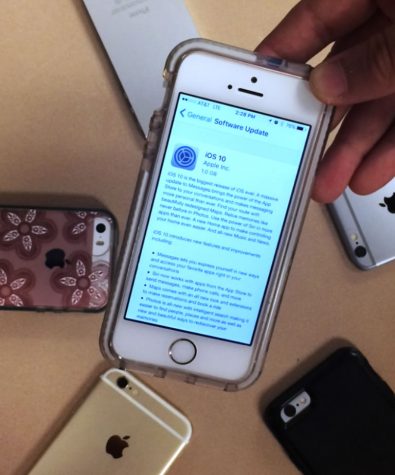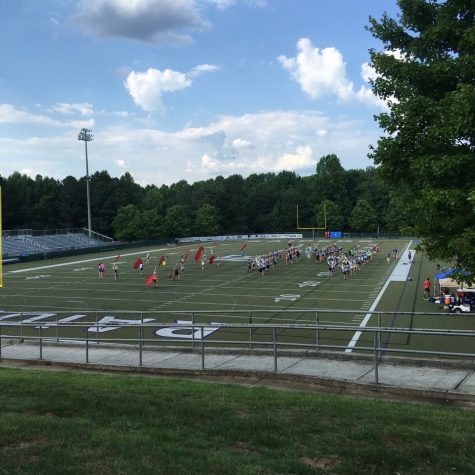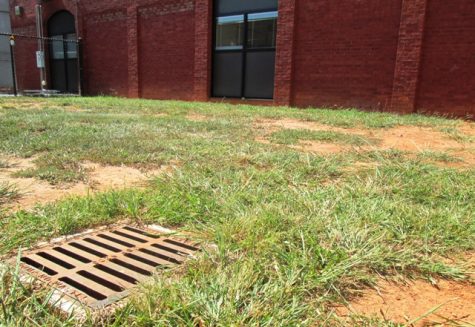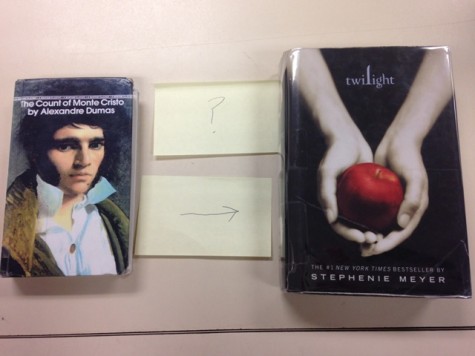Wait… What’s Economics?
Do not even sit here and pretend that it this has not happened before: a cold day comes around and something inside of you needs the largest non-fat peppermint mocha that can be provided with two shots of espresso. Or it is Christmas break and you can physically feel brain cells dying as you stare at the ceiling above your bed, so of course it is worth it to drive wherever to do whatever, as long as it gets you out of this forsaken house. This is how teenagers think when it comes to money: if it is good and if it is fun, then it is worth it. We live in the now, and we spend in the now. The future? What is that?
Of course there are always the exceptions to this highly generalized opinion of high school monetary handling. For the most part though, this is an accurate depiction. We are always more focused on what we want now than what we may need later. Fortunately for North Forsyth students, AP Economics teacher Mr. John Major has three tips for students that can possibly affect how we handle money for the rest of our lives.
- Mr. Major suggests that students should begin saving money now for retirement. While this seems millenniums away, money saved earlier in life is worth more than money you save the decade or two before you retire. Compounding interest supports this idea. This type of interest is paid both on the original amount of money and on the interest it has already earned. Basically, it is the amount of money you earn by saving and collecting interest on it. By putting money away earlier in life, you earn more interest. So do not be sassy and think that saving for retirement is something that you should think about when you are 47 not 17. Saving money now means possessing way more money later when you no longer have the dispensable income you can currently lay claim to.
- High school students in this generation have matured during an age in which debt is highly prevalent. As we have made our way through high school, news of increasing student loan debt has hit us. Mr. Major says that reasonable student loan debt is not bad though, emphasis on reasonable. If a student loan is greater than the average salary of the job a degree will get you, then the situation is incredibly irrational. Credit card debt on the other hand “is crushing,” according to Mr. Major. Swiping a piece of plastic to receive whatever is desired seems fantastic in the moment, but just remember the nice little bill you will receive at the end of the month for not only that item, but also its interest. Your credit rating is dependent on “how you pay your
bills and repay loans, how much credit you have available, what your monthly debts are, and other types of information,” and according to Mr. Major, it matters (Obringer). This rating “helps a potential lender decide whether you are a good credit risk or a bad credit risk” (Obringer). Basically, this score determines eligibility for loans given for houses or cars or as a start-up for a new business. So yes… it matters. - This last piece of advice from Mr. Major is one that is applicable to all areas of life. In the case of economics, living beneath our means is when we spend less than we make. This idea is both a financially and emotionally sound decision. “Be satisfied with less than what you are able to buy and you’ll be happier,” Mr. Major says. For teenagers, maybe that means not spending until our bank account zeroes out. Yeah, that new game is pretty sick, but so is spending time with friends who, in a few years, will probably not even be in the same state. The game, on the other hand, will still be around a few years down the road. As clichéd as it sounds, the material parts of our lives really do not matter.
It is hard to care about economics when our future is still as unclear as it was when we started middle school, but the choices we make with our money now will affect us just as much as the choices we make later, such as the college we may attend or the major we declare. The importance in economics is hard to see until it is hard to ignore, and by that point your bad economic decisions might have already negatively influenced your life. But here is the real key to economics: repeated poor decisions about where money is spent and HOW money is spent are what cause such awful money situations.
High school is about growing up and becoming your own person and surviving, but high school is also about fun. Being smart about where you spend your money does not mean cut out the fun in your life. It should just encourage you to understand what you are purchasing before you spend money. One late night trip to a fast food restaurant is not bad–17 in a row is. So be intelligent when it comes to finances. Plan ahead a little, it will not kill you. Have fun and enjoy this time in your life, but remember that life does not end when you walk across that stage to graduate. No, life is only beginning.
____________
“Economics.” Merriam-Webster.com. Merriam-Webster, 2013. Web. 20 November 2013.
“Compound interest.” Merriam-Webster.com. Merriam-Webster, 2013. Web.20 November 2013.
Obringer, Lee Ann. “How Credit Reports Work” 11 July 2002. HowStuffWorks.com. <http://money.howstuffworks.com/personal-finance/debt-management/credit-report.htm> 20 November 2013.

Emily Starling is a loud music loving girl who is enthusiastic about basically everything, but especially The Raider Wire and its incredible staff. She...












